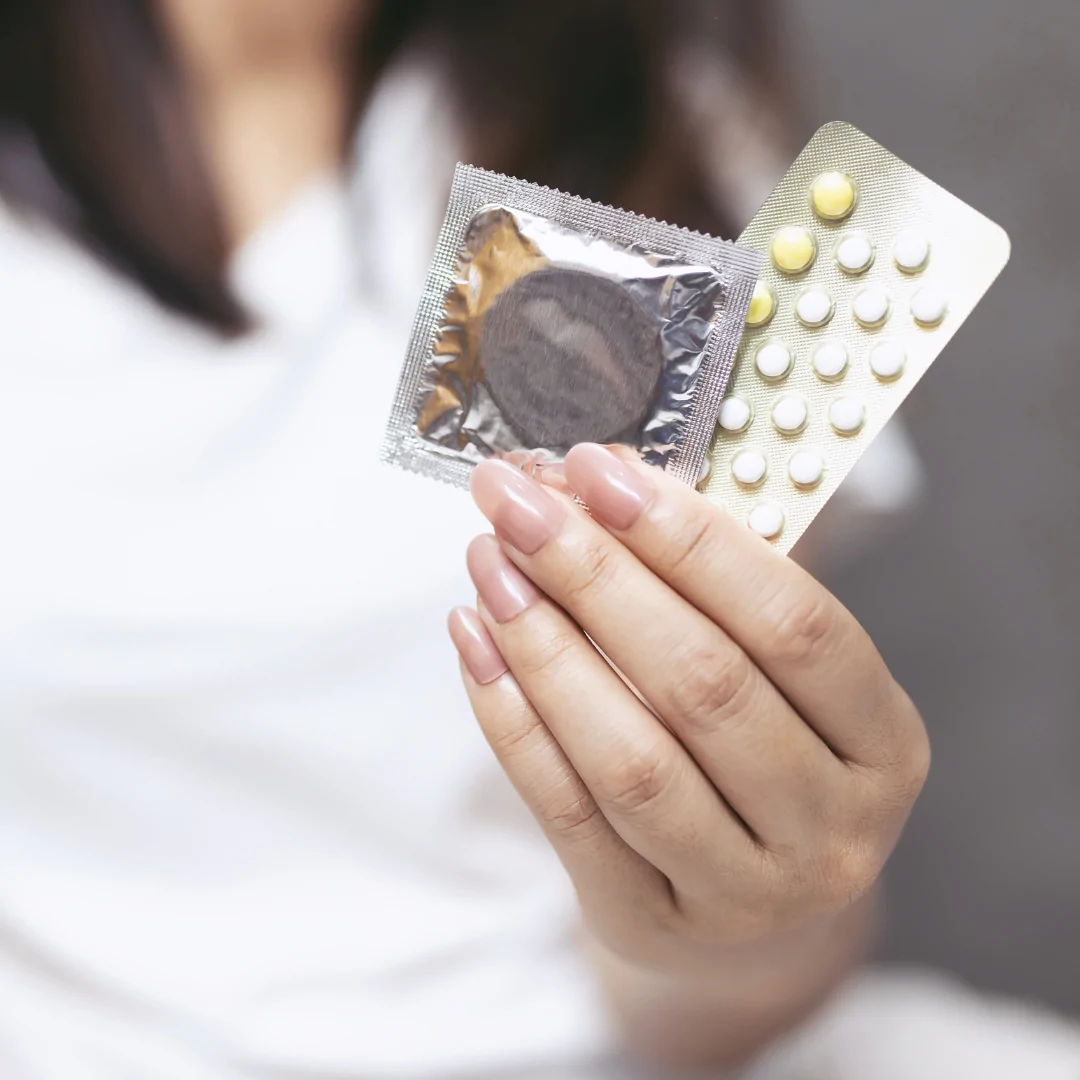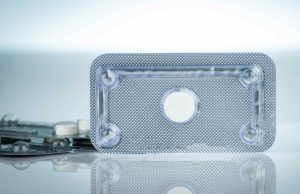You and your partner realized the condom broke during sex, now what? First, don’t panic… It can be a scary moment, but it happens. Let’s not focus on what happened, let’s instead shift our attention to the steps we can take following condom breakage.
So, what to do if the condom breaks?
First off, don’t panic –these things happen! Take a deep breath and start assessing the situation.
If you notice the condom breaks, as soon as it happens, stop ASAP. You could try urinating to push out any bacteria or viruses. Once you’ve done that it’s time to consider next steps.
Ask yourself a couple questions, starting with: did your partner ejaculate? While it is possible to get pregnant from pre-ejaculate –the chances are much higher if ejaculation has occurred with a broken condom. If ejaculation has occurred, it might be time to consider taking emergency contraception if you want to prevent pregnancy.
Emergency contraception
Ok, so you’ve established that the condom broke, and you want to take emergency contraception. Either that or you read the section above and we told you to start thinking about emergency contraception. Regardless, because the condom broke, chances of pregnancy are high. There are a few options that present different pros and cons, so let’s review them from most effective to least effective.
First off, you can get an IUD up to 5 days after the incident for it to work as an emergency contraception. You can get it inserted by a gynecologist, your primary care provider, an emergency room or your local Planned Parenthood. If you aren’t up for a procedure, then Ella is our expert birth control doctors’ pick because it is more effective than Plan B at every time point and is effective for BMIs up to 35. Ella is a prescription medication, so we advise people to get it before you need it –which you can get from us at Pandia Health.
Order Emergency Contraception Online
Need emergency contraception? Order now and get peace of mind with discreet and reliable delivery. Don't wait, take control of your reproductive health today!
Then there is Plan B which is an over the counter option. Plan B is a great option if you are in a pinch and need emergency contraception now. However, Plan B does have some limitations and cons. Plan B is not as effective for those with a BMI greater than 26 and not effective at all for people with BMIs 30 or greater. Both Ella, Plan B and its generics and Ella have a 5 day window.
Finally, there’s the Yuzpe Method (a whole bunch of birth control pills now and again in 12 hrs). If you have a pack of birth control pills with levonorgestrel or norgestrel, you can take however many pills it takes to get to 100 mcg of ethinyl estradiol and 1mg of norgestrel or 500 mg of levonorgestrel ASAP and again in 12 hours. The negatives: this is the LEAST effective emergency contraception method, but it’s better than nothing. You could start with this and then go get an IUD for emergency contraception.
Test for STD
Unfortunately, pregnancy is not your only concern after the condom breaks. You need to consider the possibility of contracting an STI a.k.a. sexually transmitted infection or STD.
Ideally, before sexual intercourse occurs, you and your partner have discussed your sexual history and STD status. Why is discussing your STD status so important? Most STDs are asymptomatic (you have no symptoms), which makes it easier to pass from partner to partner undetected. If you or your partner don’t know your STD status, it is probably best to get tested for STDs. STD tests should be taken about 2 weeks after unprotected sex, or as soon as you notice symptoms. If you take it before then, then you could get a false negative, meaning it says you don’t have an STD, because there were too few bacteria to pick it up, but a few days later, the test would be positive if you re-checked.
Testing for STDs shouldn’t be scary –in fact, it’s very simple! There are two ways to get tested. The first way is to set up a doctor’s appointment and get tested at the doctor’s office or lab. The second option is a bit more discreet if you aren’t feeling comfortable with going out to get tested which is using an at-home STD test kit.
Test for HIV
There are different precautions you need to take if you suspect you have been exposed to HIV (Human Immunodeficiency Virus). HIV is a more serious STD, because there is NO cure. However, there is medication that prevents the virus from spreading throughout the body. Those with a very low ‘undetectable’ level of HIV are able to live long, happy fulfilling lives.
That being said, even if the condom broke and they pulled out, HIV can still be passed. Luckily, there are medications you can take to try to prevent you from catching HIV, like PEP =Post Exposure Prophylaxis (drugs to prevent events after you were exposed). If you suspect/know you have been exposed to HIV, you can take a 28 day regimen of PEP to prevent HIV from taking hold in your body.
Unlike the other STDs mentioned earlier, it’s best to take an HIV test about 7 weeks after unprotected intercourse to check if you were infected. Unfortunately, the symptoms are flu-like –making it really hard to tell if it is flu or HIV without getting tested.
How to prevent condom breakage
Preventing condoms from breaking comes down to multiple factors, but here are a few tips and tricks that can help you ensure your condom stays in the best condition.
- Keep condoms in a cool, dark place
It’s best to keep them in a drawer. It is not good to keep them in a wallet or car. Beware of friction in your purse or wallet, the friction may actually break the condoms down over time. And although we are saying a “cool” place, we don’t mean the refrigerator. - Don’t leave the condom out in the sun
Just like how you shouldn’t keep a condom in the refrigerator, you shouldn’t leave a condom out in the sun. - Don’t put condoms near sharp/penetrating objects
Don’t put a condom in a space like a purse or pocket where there are sharp objects like keys, pens, or jewelry that could penetrate the packaging and the condom. If you keep a condom in a purse or pockets, make sure they are protected well in a small bag kept away from sharp objects. - Avoid leaving the condoms in the car
Condoms don’t do well when the temperatures go from extremely hot to extremely cold. So, it’s best to keep the condoms out of the car. - If it keeps falling off or leaves the “red circle of death at the base”get the right size
Most condoms will fit 90% of those with penises. However if you find the condom falling off or that it leaves a “red circle of death” (painful circle at the bottom/base) then those with penies need to measure theirself to find a condom that fits correctly –not too tight or too loose. Despite what others will think, it’s not cool to try and get the largest size to impress whoever –it just means the condom might slip off. Conversely, if the condom is too tight, it can cause discomfort as well as easily break. If you’re looking for the perfect fit, check out myONE, a size-inclusive line with over 60 different condom sizes.
How can Pandia Health help
Pandia Health can provide you with emergency contraception! Just sign up for regular birth control and our doctors will throw in a prescription for emergency contraception. It’s only $30 once a year to use our expert doctors to help you find the best birth control pill, patch, or ring for you.
Also, while we don’t sell condoms, we can help lower your chances of pregnancy through reliable and affordable hormonal contraception! Condom breaks and you’re on birth control? No need to worry about pregnancy prevention! Additionally, if you are looking for those discreet at home STD tests we mentioned above, you can purchase them easily here.
Lastly, feel free to browse our blogs (medically reviewed too!) that cover a wide range of commonly asked questions from those annoying period related questions to fun stuff like self pleasure.
Disclaimer: This article, even if and to the extent that features the advice of physicians and medical practitioners, it is not, nor is it intended to be, a substitute for professional medical advice, diagnosis or treatment, and should never be relied upon for specific medical advice. Always seek the advice of your doctor/primary care provider for specific health needs.



